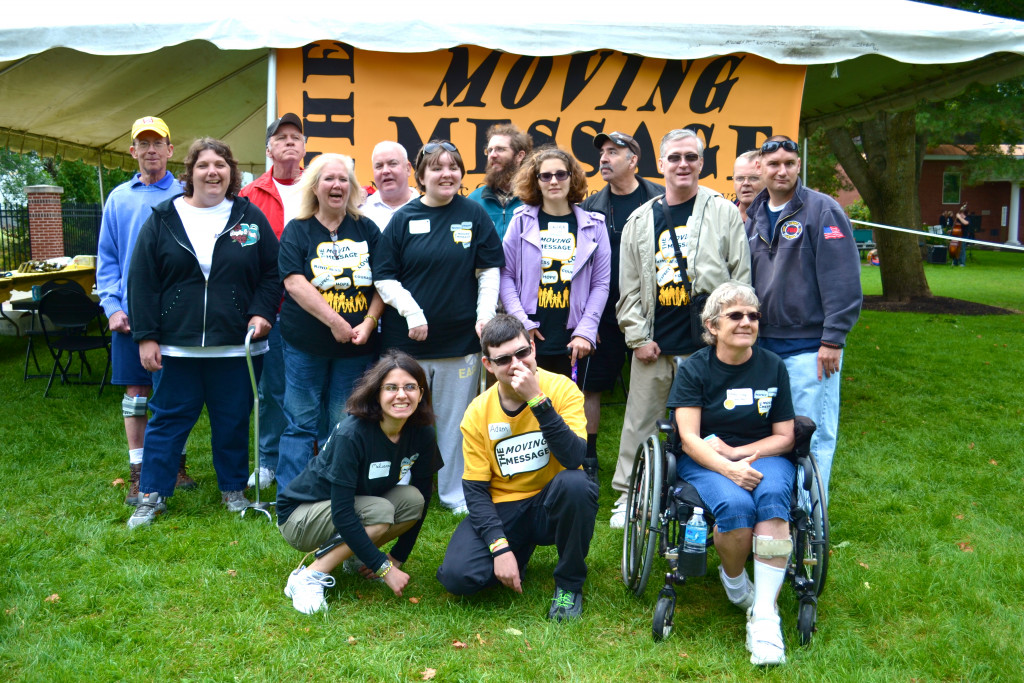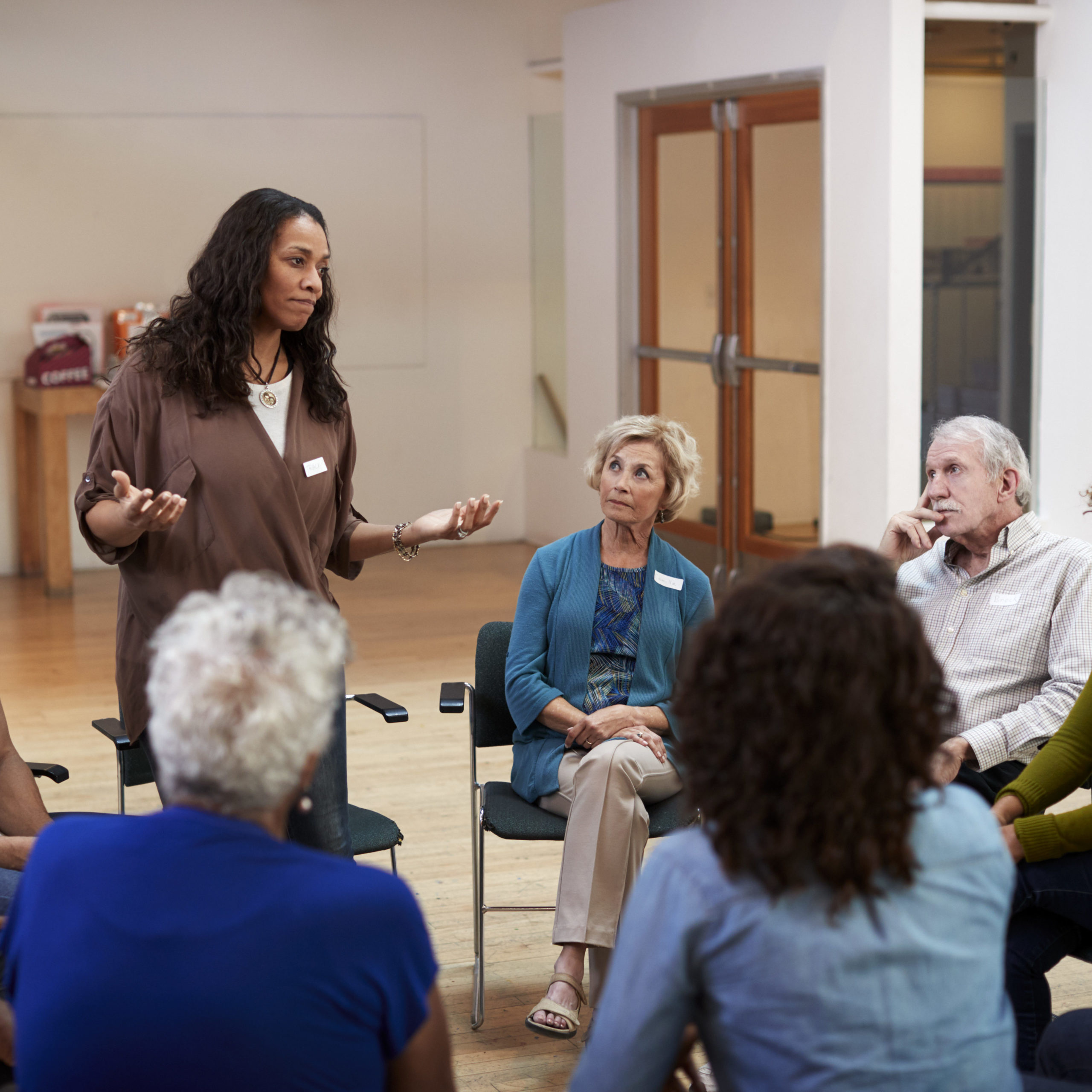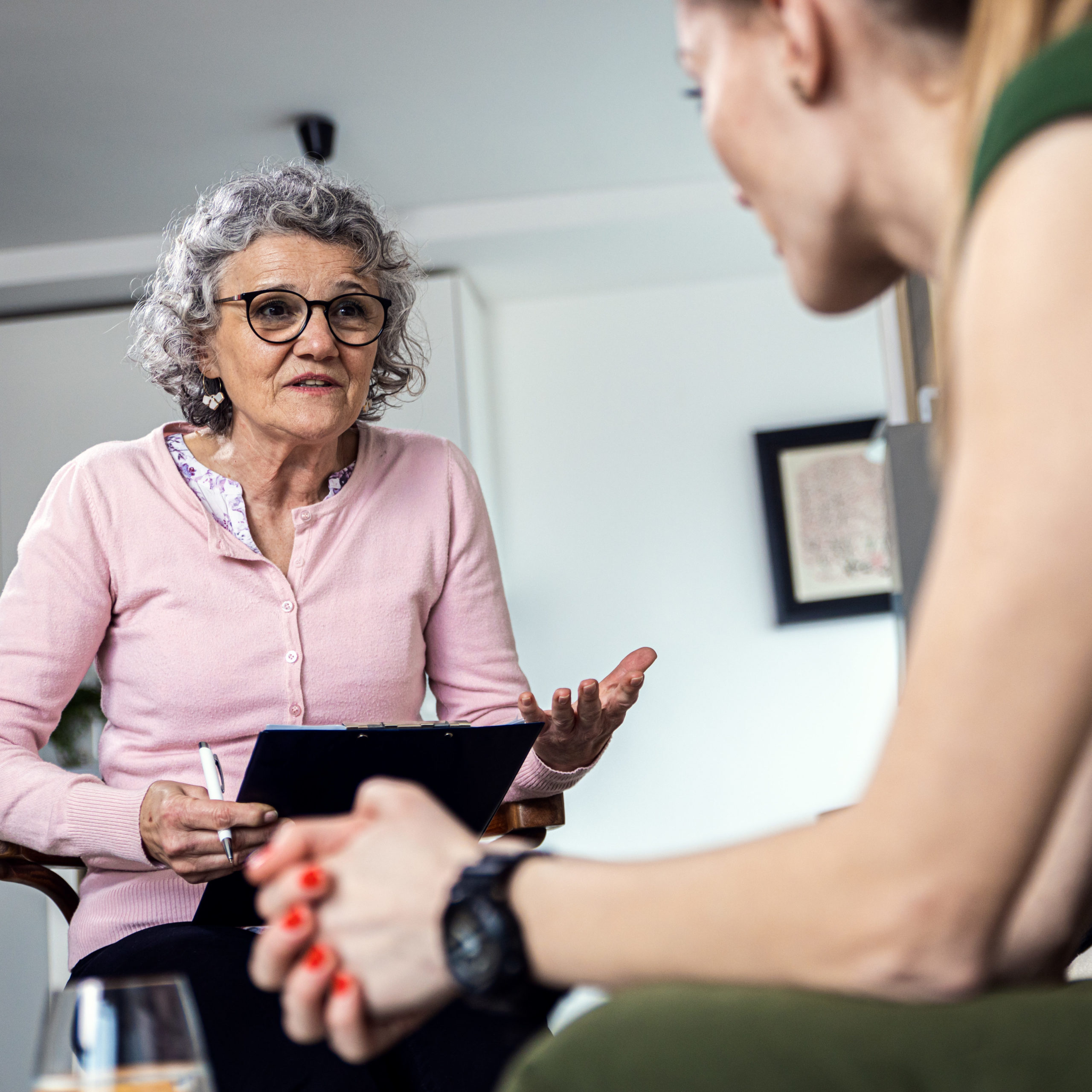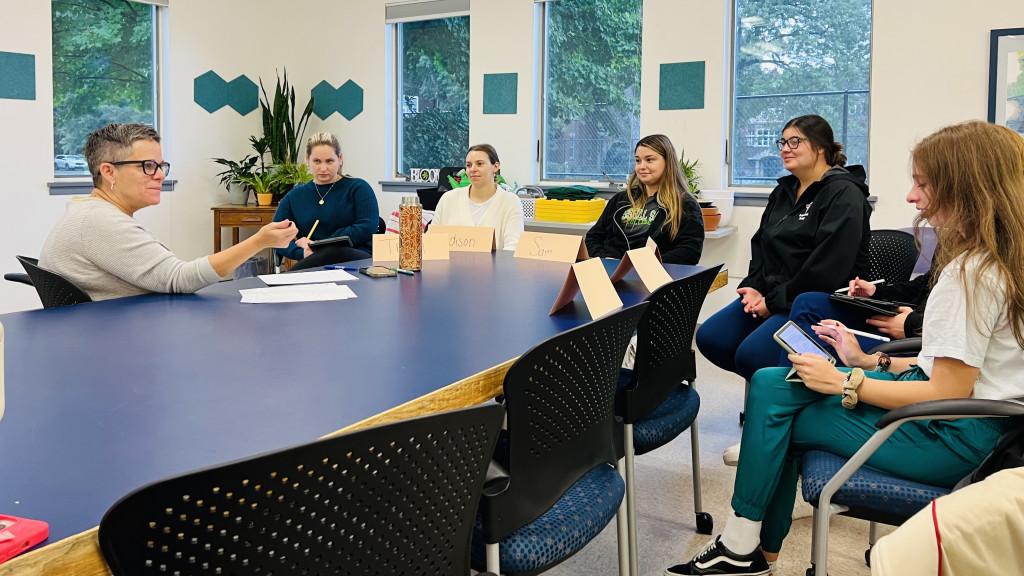The Aphasia Community Explained
Dive into this quick snapshot of aphasia awareness with Julie Hart, MS, CCP‑SLP, Director of The Aphasia Center at Russell Sage College. Learn what aphasia is, how it affects communication, and what you can do to support those living with it.
Save the Date: The Moving Message
Join us Saturday, September 13, 2025, from 11am – 2pm on the Albany Campus Quad at Russell Sage.
A 1-mile walk and festival geared toward raising awareness about neurogenic communication disorders and raising money for the Moving Message Fund. There will be motivating speeches, suggestions for how to support communication, stories of those who have had a stroke or brain injury, vendors, artists, raffles, music, food, kids activities, and much more.

What We Do
This center will provide training of conversation partners to allow for increased socialization in home and in the community.
In addition, collaboration with the varied health-related majors at the college trains future healthcare practitioners on supported communication.
Isolation, depression, and poor access to healthcare are very common in people with chronic aphasia, and we hope to avoid this by engaging people in everyday activities with others. We also aspire to provide truly beneficial caregiver/care partner support to families, friends, and others impacted by aphasia.

Who We Serve
The Aphasia Center works with those with difficulty communicating after strokes, brain injuries, or other neurological conditions.
A person must be medically stable to attend. Clients are served by the New York State Department of Health TBI-Medicaid Waiver program or are private-paying clients seeking longer-term support after discharge from outpatient services.

In the News
A woman who had a stroke here in the Capital Region about ten years ago has been battling aphasia ever since, a language disorder that affects a person’s ability to find the right word, understand what others are saying, read, write or put a full sentence together.
In the following Q&A, Julie Hart talks about her career inspiration, the difference The Aphasia Center makes, and how you can help raise awareness about this condition, which affects 2 million Americans but is not well-known except by those directly impacted.

Services Provided
A structured day program that runs Monday through Friday
Group offerings
Intake Process
If you, or someone you know is interested in the program, please contact:
Julie Hart, MS, CCC-SLP
Director of The Aphasia Center
[email protected]
518-292-1800
We will get back in touch with you to set up an individual meeting and a tour to determine if this program is right for you.









